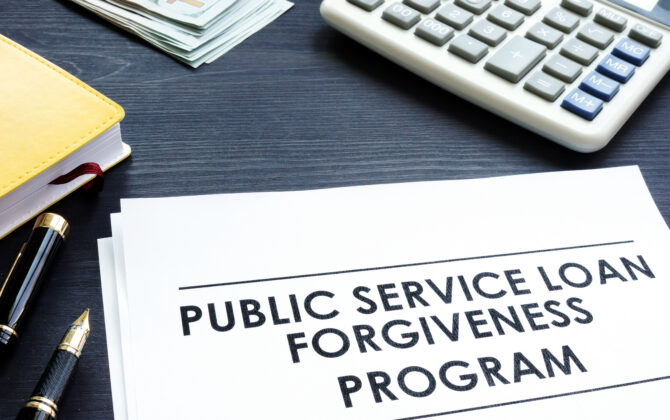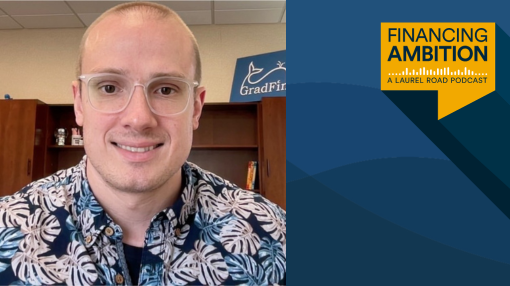In the context of student loans, three terms are used to refer to the ending of a borrower’s obligation to repay their debt: discharge, cancellation, and forgiveness. While each term means all or a portion of a borrower’s debt will be reduced or eliminated, they have important distinctions:
With a focus on federal student loan forgiveness, including PSLF, let’s explore who qualifies to have their student loan debt reduced or eliminated in this way.
Determine your eligibility
To understand if you’re eligible for federal student loan forgiveness programs, you will need to understand what types of federal student loans you have, if your employment situation qualifies, your household income, and what the requirements of the different forgiveness programs are.
You have federal student loans
Depending on what type of federal student loans and what type of forgiveness path you’re pursuing, you may need to consolidate your federal student loans. To learn more about which federal student loan types are eligible for Income-Driven Repayment (IDR) visit our Guide to Federal Student Loan Repayment Programs.
In the case of PSLF, only non-defaulted loans received under the William D. Ford Federal Direct Loan (Direct Loan) Program are eligible for forgiveness through the PSLF program. Learn more about PSLF eligibility by visiting the Student Aid website here.
Under the Teacher Loan Forgiveness Program, Direct Loans or FFEL Program loans are eligible for forgiveness. Learn more here.
What is Public Service Loan Forgiveness (PSLF)?
PSLF is a US government program that allows borrowers employed at qualifying nonprofits and government organizations to have their Federal Direct Loans forgiven after ten years of repayment under an Income-driven Repayment (IDR) plan. To be eligible for PSLF, you must:
- be employed by a qualifying nonprofit OR a US government organization at any level (federal, state, local, or tribal) – including US military service.
- work full-time for that agency or organization
- have Federal Direct Loans (or consolidate other federal student loans into a Direct Loan)
- be enrolled in an income-driven repayment (IDR) plan
- make 120 qualifying payments
PSLF is a notoriously complicated program with frequently changing rules and requirements. You can learn more about the program at studentaid.gov or see our guide to PSLF.
Who qualifies for PSLF?
Public sector professionals — such as doctors, nurses, first responders, and teachers — employed by qualifying nonprofit organizations and government entities are eligible for PSLF. Learn more about jobs that qualify for PSLF here.
Payments
To be eligible for forgiveness through the 10-year PSLF program, you must make 120 qualifying payments. Typically, borrowers pursuing PSLF are enrolled in an IDR plan:
IDR Comparison Chart
| Applications for IDR plans and loan consolidation are available on http://studentaid.gov. You can also submit a PDF application to your loan servicer by uploading it to your servicer’s website or mailing it to them. Expect a delay in processing times. | |||
| Plan | Monthly Payments | Repayment Period | Status |
| Income-Based Repayment (IBR) |
|
20-25 years, depending on when you become a new borrower | Accepting new enrollments. |
| Income-Contingent Repayment (ICR) |
The lesser of the following:
|
25 years | Accepting new enrollments. |
| Pay as You Earn (PAYE) |
|
20 years | Accepting new enrollments. |
Application
Understanding the rules, preparing paperwork, and applying for PSLF can be difficult to navigate on your own. Recertifying your employment each year and making sure you meet all PSLF program requirements over the course of ten years can be daunting as well. Schedule a free consultation with one of our student loan specialists who can help get your questions answered, make a plan, and help guide you on potential tax implications of a student loan forgiveness event.
Forgiveness through IDR
To apply for student loan forgiveness through IDR, first review your eligibility for the different types of plans and get a sense of which plan could be right for you using Student Aid’s Loan Simulator tool. Do you meet all the requirements and have all the documentation you need? If you have parent PLUS loans, you must consolidate them to become eligible for IDR. If you’re unsure or have questions, you could schedule a free call with a student loan specialist for guidance.
IDR applications
To apply to the federal IDR program, you will need to sign in to your account on studentaid.gov. For a preview of the application questions, you can view a demo here. Before you start your application, make sure you have the right documentation on hand to help you complete the application efficiently and accurately.
Gather materials
When applying to IDR, you will typically need to have the following documentation readily available:
- A verified FSA ID
- Your financial information
- Your personal information
- Your spouse’s information (if applicable)
Complete the application
The application for IDR must be completed in a single session, but the good news is that most people complete the application in 10 minutes or less, according to the studentaid.gov. Generally, IDR application processing should take less than two weeks. However, it’s also not uncommon for applications sit under review for months.
Next steps
If you think you could qualify for federal student loan forgiveness, contact your loan servicer and get an understanding of what types of federal student loans you have and whether or not you need to consolidate.
If you’re thinking of applying to IDR or PSLF, our team can help. A student loan specialist can help you track progress on your application and keep you up-to-date on the latest requirements for different forgiveness programs.




